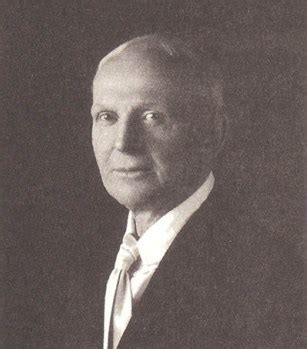A Quote by Alan Watts
The self-styled practical man of affairs who pooh-poohs philosophy as a lot of windy notions is himself a pragmatist or a positivist, and a bad one at that, since he has given no thought to his position.
Related Quotes
Therefore the good man ought to be a lover of self, since he will then both benefit himself by acting nobly and aid his fellows; but the bad man ought not to be a lover of self, since he will follow his base passions, and so injure both himself and his neighbors. With the bad man therefore, what he does is not in accord with what he ought to do, but the good man does what he ought, since intelligence always chooses for itself that which is best, and the good man obeys his intelligence.
Man is an evasive beast, given to cultivating strange notions about himself. He is humiliated by his simian ancestry, and tries to deny his animal nature, to persuade himself that he is not limited by its weaknesses nor concerned in its fate. And this impulse may be harmless, when it is genuine. But what are we to say when we see the formulas of heroic self-deception made use of by unheroic self-indulgence?
In youth it is the outward aspect of things that most engages us; while in age, thought or reflection is the predominating qualityof the mind. Hence, youth is the time for poetry, and age is more inclined to philosophy. In practical affairs it is the same: a man shapes his resolutions in youth more by the impression that the outward world makes upon him; whereas, when he is old, it is thought that determines his actions.
It is man's intrinsic and irreducible self-responsibility to humanize himself, to exercise his entire range of rational and moral resources to raise his mode of being and seeing and acting above not just that of animals, but also above that of the majority of subhuman (never to be self-realized) humans who will never draw themselves into a self-punishing position of focal self-diagnosis and self-accountability.
The young man who addresses himself in stern earnest to organizing his life-his habits, his associations, his reading, his study, his work-stands far more chance of rising to a position affording him opportunity to exercise his organizing abilities than the fellow who dawdles along without chart or compass, without plan or purpose, without self-improvement and self-discipline.
The one and only formative power given to man Is thought. By his thinking he not only makes character, but body and affairs, for as he thinketh within himself, so is he. Prejudice is a mist, which in our journey through the world often dims the brightest and obscures the best of all the good and glorious objects that meet us on our way.
There is no deception on the part of the woman, where a man bewilders himself: if he deludes his own wits, I can certainly acquit the women. Whatever man allows his mind to dwell upon the imprint his imagination has foolishly taken of women, is fanning the flames within himself -- and, since the woman knows nothing about it, she is not to blame. For if a man incites himself to drown, and will not restrain himself, it is not the water's fault.
As long as a man is persuaded that he can make even the smallest contribution to his salvation, he remains self-confident and does not utterly despair of himself, and so is not humbled before God. Such a man plans out for himself a position, an occasion, a work, which shall bring him final salvation, but which will not.
Since Copernicus, man seems to have got himself on an inclined plane-now he is slipping faster and faster away from the center into-what? into nothingness? into a 'penetrating sense of his nothingness?' ... all science, natural as well as unnatural-which is what I call the self-critique of knowledge-has at present the object of dissuading man from his former respect for himself, as if this had been but a piece of bizarre conceit.
I've seen pretty clear, ever since I was a young un, as religion's something else besides notions. It isn't notions sets people doing the right things--it's feelings. It's the same with the notions in religion as it is with math'matics--a man may be able to work problems straight off in's head as he sits by the fire and smokes his pipe; but if he has to make a machine or a building, he must have a will and a resolution, and love something else better than his own ease.
In Dogen's writing, the practical instruction, philosophy and poetry are together in one voice. People hear about his poetry, go to his work, and expect to find poetry, or they hear about his philosophy and expect to find philosophy. They look just for practical instruction and find poetry and philosophy. They can't make out the complexity of his writing, become frustrated and let him go.
In a position of utter desolation, when man cannot express himself in positive action, when his only achievement may consist in enduring his sufferings in the right way - an honorable way - in such a position man can, through loving contemplation of the image he carries of his beloved, achieve fulfillment.






































